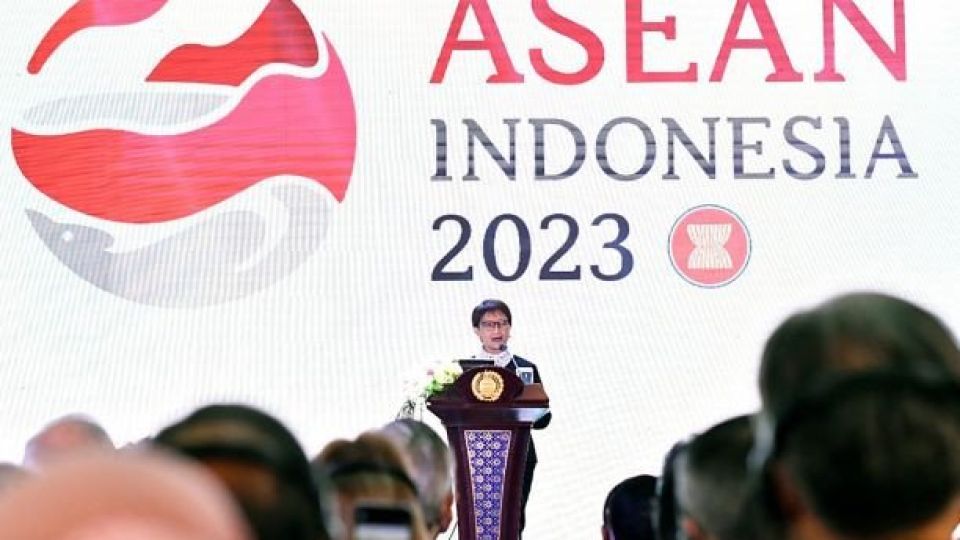January 16, 2023
JAKARTA – Indonesia plans to continue contributing to the world by taking a leadership role in the challenging global situation of geopolitical rivalries, both regionally and internationally, while it seeks to be a nonpermanent member of the United Nations Security Council (UNSC) in 2029-2030.
Foreign Minister Retno L.P. Marsudi expressed this aim during her 2023 annual press briefing on Jan. 11, when she outlined Indonesia’s foreign policy achievements in 2022 and priorities for 2023.
The minister said the country was committed to always be part of the solution in facing global challenges, which would become more difficult in 2023.
“Global uncertainties and geopolitical dynamics will continue [in] the world. Major power rivalries will become more intense,” Retno said on Wednesday.
Against that backdrop, she said, Indonesia’s 2023 ASEAN chairmanship had adopted the theme “ASEAN Matters: Epicentrum of Growth”. Retno added that stability and respect for international law, as well as prioritizing inclusive cooperation, were the keys for ASEAN to become the epicenter of regional growth in a peaceful Indo-Pacific.
“Therefore, the AOIP will be implemented in the spirit of Indonesia’s chairmanship priorities,” Retno said, referring to the ASEAN Outlook on the Indo-Pacific.
She noted that many countries had adopted their own concept of the Indo-Pacific. Synergy was thus required so these various concepts “do not exacerbate rivalry”, and the region must be approached from not solely the security aspect but also inclusive economic development.
The minister also said one of Indonesia’s diplomatic priorities in 2023 was peace and humanitarian diplomacy. As such, the country intended to apply to become a nonpermanent member of the UNSC.
“Given Indonesia’s global role and active contributions, Indonesia has decided to put forward our candidacy as a nonpermanent member of the UN Security Council for 2029-2030,” Retno said.
“Indonesia will continue to contribute and play a leadership [role] amid a world full of challenges, leadership in a challenging world.”
Global tensions
Retno’s annual press briefing comes after Indonesia completed its 2022 Group of 20 presidency and began its 2023 ASEAN chairmanship.
Geopolitical tensions continue to loom in the region against a backdrop of tensions in the South China Sea as well as increased rivalry between China and the United States.
In a speech in November at the Global Town Hall 2022 of the Foreign Policy Community of Indonesia (FPCI), US State Department Assistant Secretary for East Asian and Pacific Affairs Daniel J. Kritenbrink said that nations in the Indo-Pacific had witnessed increased threats to their territorial sovereignty, along with “disregard for democratic governance and horrific human rights abuses carried out by totalitarian governments”.
Kritenbrink said that as an Indo-Pacific nation, the US had a vital interest in realizing a region that was open, interconnected, prosperous, secure and resilient.
“The United States will strengthen its own role in the Indo-Pacific again while building the collective capacity of our allies, partners and friends to accomplish our shared goals,” he told the FPCI Global Town Hall 2022 by video call.
Fu Ying, a former Chinese ambassador to the United Kingdom, Australia and the Philippines, cautioned the town hall that geopolitics as a security challenge and military conflict had returned. Fu noted that the geopolitical conflict in Europe was a result of a “geo-security collision” between Russia and US-led NATO, while the US was provoking a “strategic competition” with China in the Asia-Pacific.
She also wondered whether the world could move beyond conventional geopolitical thinking to develop shared prosperity, or if it would allow geopolitical conflicts to bring an end to globalization.
“I have good reason to believe that the majority of countries in Asia want to see the momentum of peace and prosperity continue. They prefer not to be forced to pick sides, much less to allow the original agenda to be shifted from economic issues to military and security concerns,” Fu told the town hall participants.
Shafiah Muhibat, deputy executive director for research at the Centre for Strategic and International Studies (CSIS) in Jakarta, noted that Retno’s annual briefing did not address major power politics in detail, in particular US-China ties. It also did not directly mention key issues like the territorial dispute in the South China Sea or rising tensions in the Taiwan Strait.
“As an important country in the Southeast Asia region and [with] Indonesia holding the ASEAN chairmanship in 2023, we really expect to see how Indonesia will navigate the [major power rivalry] between the US and China,” Shafiah said in a separate discussion on Wednesday about the minister’s annual briefing.


